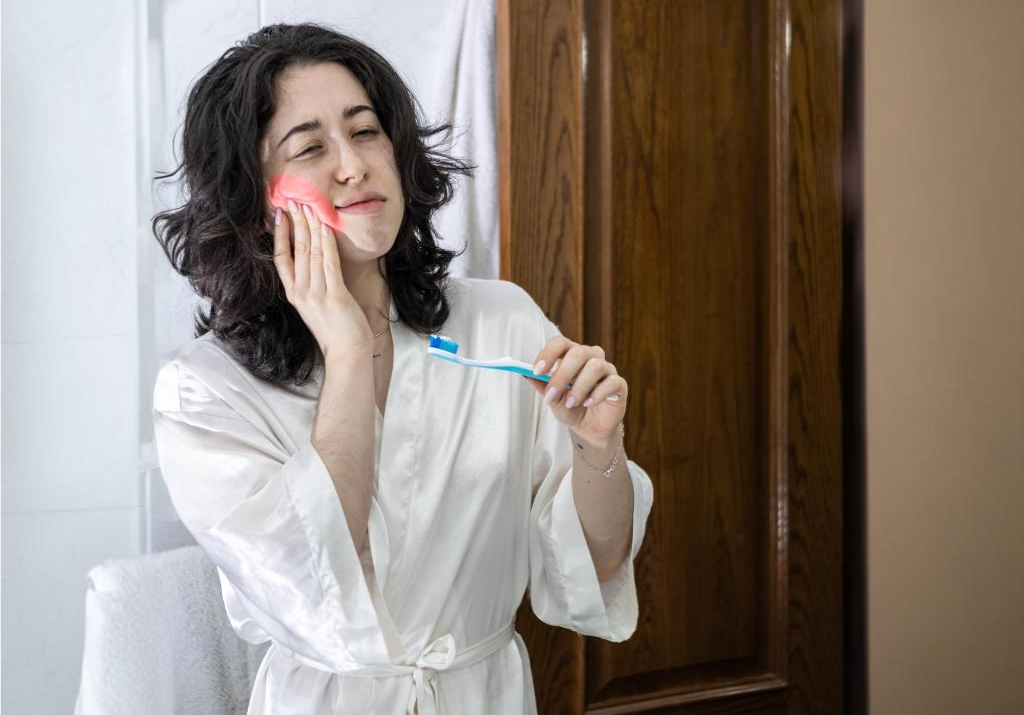Home » Does Brushing Your Teeth Help Toothache?
Toothaches can disrupt your day and leave you searching for immediate relief. Whether it’s a dull ache or sharp pain, understanding what causes a toothache and how brushing your teeth can help is key to addressing the discomfort.
Can Brushing Relieve a Toothache?
Brushing your teeth can sometimes alleviate toothache, but it’s not a guaranteed solution for all types of dental pain. Here’s how brushing can help:
- Removes Food Particles and Debris
Tooth pain is often caused by food trapped between your teeth or under the gumline. Brushing can dislodge these particles, reducing irritation and pressure that might be contributing to your discomfort.
- Fights Bacterial Build-Up
Plaque and bacteria accumulation can irritate gums and worsen tooth pain. Regular brushing helps remove these irritants, preventing further complications like gum disease or cavities.
- Improves Gum Health
Gentle brushing massages the gums and boosts circulation, which may reduce inflammation and mild discomfort caused by gum irritation.
- Delivers Pain-Relief Ingredients
Using a toothpaste designed for sensitive teeth can ease pain. These toothpastes often contain desensitising agents like potassium nitrate, which block nerve signals and provide temporary relief.
When Brushing Won’t Help
While brushing can address some minor causes of toothache, it’s not a cure-all. Severe or persistent tooth pain may signal a deeper problem that requires professional care, such as:
– Cavities: Tooth decay causing sensitivity or pain won’t go away with brushing alone.
– Infections: An abscessed tooth or gum infection needs immediate dental attention to prevent complications.
– Cracked or Damaged Teeth: Brushing won’t resolve pain caused by structural damage to your tooth.
– Impacted Wisdom Teeth: Pain from impacted teeth requires evaluation by a dentist.
Tips for Brushing When You Have a Toothache
If brushing is uncomfortable due to a toothache, follow these tips to make it more effective and gentle:
- Use a Soft-Bristled Toothbrush
A soft toothbrush is less likely to irritate sensitive gums or teeth.
- Brush Gently
Avoid aggressive brushing, which can worsen gum irritation and sensitivity.
- Choose the Right Toothpaste
Opt for a fluoride toothpaste or one formulated for sensitive teeth to reduce discomfort.
- Warm Water Rinse
Rinse your mouth with warm salt water before brushing to soothe sore areas and reduce inflammation.
- Avoid Extreme Temperatures
Use lukewarm water while brushing to prevent triggering sensitivity.
Preventing Toothaches with Good Oral Hygiene
- Brush twice daily using proper techniques to clean every surface of your teeth.
- Floss daily to remove plaque and debris from between your teeth.
- Visit your dentist regularly for professional cleanings and check-ups.
- Limit sugary and acidic foods that can contribute to tooth decay.
- Stay hydrated to promote saliva production, which naturally fights bacteria.
When to See a Dentist for Toothache
If brushing your teeth doesn’t relieve your toothache or if the pain persists for more than a day, it’s time to consult your dentist. Other symptoms that warrant a dental visit include:
– Swelling in your gums or face
– Fever or general malaise
– Persistent bad breath or foul taste
– Difficulty eating or opening your mouth
These signs may indicate an infection or other serious dental issue that requires immediate care.
While brushing your teeth can provide relief for certain types of toothaches, it’s not a replacement for professional dental care. Think of it as a first line of defence against minor discomfort and a vital part of maintaining overall oral health.

